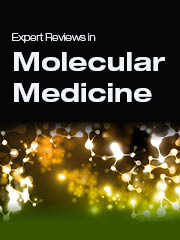Crossref Citations
This article has been cited by the following publications. This list is generated based on data provided by
Crossref.
Stacy, Zachary A
Dobesh, Paul P
and
Trujillo, Toby C
2006.
Cardiovascular Risks of Cyclooxygenase Inhibition.
Pharmacotherapy,
Vol. 26,
Issue. 7,
p.
919.
Foster, K. Wade
Katiyar, Santosh K.
Yusuf, Nabiha
and
Elmets, Craig A.
2007.
Biophysical and Physiological Effects of Solar Radiation on Human Skin.
p.
25.
Iñiguez, Miguel A.
Cacheiro-Llaguno, Cristina
Cuesta, Natalia
Díaz-Muñoz, Manuel D.
and
Fresno, Manuel
2008.
Prostanoid function and cardiovascular disease.
Archives of Physiology and Biochemistry,
Vol. 114,
Issue. 3,
p.
201.
Choi, Brian G.
Vilahur, Gemma
Zafar, M. Urooj
Cardoso, Luis
Yadegar, Daniel
Ibanez, Borja
Tunstead, James
Viles-Gonzalez, Juan F.
Schaffler, Mitchell B.
Fuster, Valentin
and
Badimon, Juan J.
2008.
Selective estrogen receptor modulation influences atherosclerotic plaque composition in a rabbit menopause model.
Atherosclerosis,
Vol. 201,
Issue. 1,
p.
76.
Nyiligira, E.
Viljoen, A.M.
Van Heerden, F.R.
Van Zyl, R.L.
Van Vuuren, S.F.
and
Steenkamp, P.A.
2008.
Phytochemistry and in vitro pharmacological activities of South African Vitex (Verbenaceae) species.
Journal of Ethnopharmacology,
Vol. 119,
Issue. 3,
p.
680.
Herndon, Christopher M.
Hutchison, Rob W.
Berdine, Hildegarde J.
Stacy, Zachary A.
Chen, Judy T.
Farnsworth, David D.
Dang, Devra
and
Fermo, Joli D.
2008.
Management of Chronic Nonmalignant Pain with Nonsteroidal Antiinflammatory Drugs.
Pharmacotherapy: The Journal of Human Pharmacology and Drug Therapy,
Vol. 28,
Issue. 6,
p.
788.
Innis, Sheila M.
and
Davidson, A. George F.
2008.
Cystic Fibrosis and Nutrition: Linking Phospholipids and Essential Fatty Acids with Thiol Metabolism.
Annual Review of Nutrition,
Vol. 28,
Issue. 1,
p.
55.
Ahmad, Muzamil
Rose, Marie E.
Vagni, Vincent
Griffith, Raymond P.
Dixon, C. Edward
Kochanek, Patrick M.
Hickey, Robert W.
and
Graham, Steven H.
2008.
Genetic disruption of cyclooxygenase‐2 does not improve histological or behavioral outcome after traumatic brain injury in mice.
Journal of Neuroscience Research,
Vol. 86,
Issue. 16,
p.
3605.
Larbi, Anis
Combet, Emilie
Pawelec, Graham
and
Fulop, Tamas
2009.
Handbook on Immunosenescence.
p.
1437.
Radhakrishnan, Geethalakshmi
Yamamoto, Morio
Maeda, Hironori
Nakagawa, Aimi
KatareGopalrao, Rajesh
Okada, Hironobu
Nishimori, Hideaki
Wariishi, Seiichiro
Toda, Eiji
Ogawa, Hiroshi
and
Sasaguri, Shiro
2009.
Intake of dissolved organic matter from deep seawater inhibits atherosclerosis progression.
Biochemical and Biophysical Research Communications,
Vol. 387,
Issue. 1,
p.
25.
Jernström, H
Bågeman, E
Rose, C
Jönsson, P-E
and
Ingvar, C
2009.
CYP2C8 and CYP2C9 polymorphisms in relation to tumour characteristics and early breast cancer related events among 652 breast cancer patients.
British Journal of Cancer,
Vol. 101,
Issue. 11,
p.
1817.
van Rossum, Damian B.
and
Patterson, Randen L.
2009.
PKC and PLA2: Probing the complexities of the calcium network.
Cell Calcium,
Vol. 45,
Issue. 6,
p.
535.
Barbieri, Silvia S.
Amadio, Patrizia
Gianellini, Sara
Tarantino, Eva
Zacchi, Elena
Veglia, Fabrizio
Howe, Louise R.
Weksler, Babette B.
Mussoni, Luciana
and
Tremoli, Elena
2012.
Cyclooxygenase-2–Derived Prostacyclin Regulates Arterial Thrombus Formation by Suppressing Tissue Factor in a Sirtuin-1–Dependent-Manner.
Circulation,
Vol. 126,
Issue. 11,
p.
1373.
Thiriet, Marc
2013.
Tissue Functioning and Remodeling in the Circulatory and Ventilatory Systems.
Vol. 5,
Issue. ,
p.
381.
Prossnitz, Eric R.
and
Barton, Matthias
2014.
Estrogen biology: New insights into GPER function and clinical opportunities.
Molecular and Cellular Endocrinology,
Vol. 389,
Issue. 1-2,
p.
71.
Papageorgiou, Nikolaos
Zacharia, Effimia
Briasoulis, Alexandros
Charakida, Marietta
and
Tousoulis, Dimitris
2016.
Celecoxib for the treatment of atherosclerosis.
Expert Opinion on Investigational Drugs,
Vol. 25,
Issue. 5,
p.
619.
ZHANG, Haolin
LIU, Yuning
WENG, Ji
USUDA, Kento
FUJII, Kazuki
WATANABE, Gen
and
NAGAOKA, Kentaro
2017.
Decrease of lactogenic hormones induce epithelial-mesenchymal transition via TGFβ1 and arachidonic acid during mammary gland involution.
Journal of Reproduction and Development,
Vol. 63,
Issue. 3,
p.
325.
Mortazavi-Jahromi, Seyed Shahabeddin
Alizadeh, Shahab
Javanbakht, Mohammad Hassan
and
Mirshafiey, Abbas
2018.
Cardioprotective effect of β-d-mannuronic acid (M2000) as a novel NSAID on gene expression of oxLDL scavenger receptors in the experimental diabetic model.
Immunopharmacology and Immunotoxicology,
Vol. 40,
Issue. 4,
p.
284.
Parvez, Saba
Long, Marcus J. C.
Poganik, Jesse R.
and
Aye, Yimon
2018.
Redox Signaling by Reactive Electrophiles and Oxidants.
Chemical Reviews,
Vol. 118,
Issue. 18,
p.
8798.
Kang, Eugene
Zhou, Guangyan
Yousefi, Mitra
Cayrol, Romain
Xia, Jianguo
and
Gruenheid, Samantha
2018.
Loss of disease tolerance during Citrobacter rodentium infection is associated with impaired epithelial differentiation and hyperactivation of T cell responses.
Scientific Reports,
Vol. 8,
Issue. 1,




